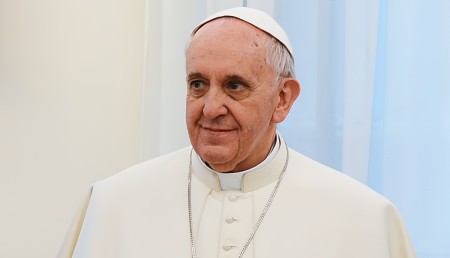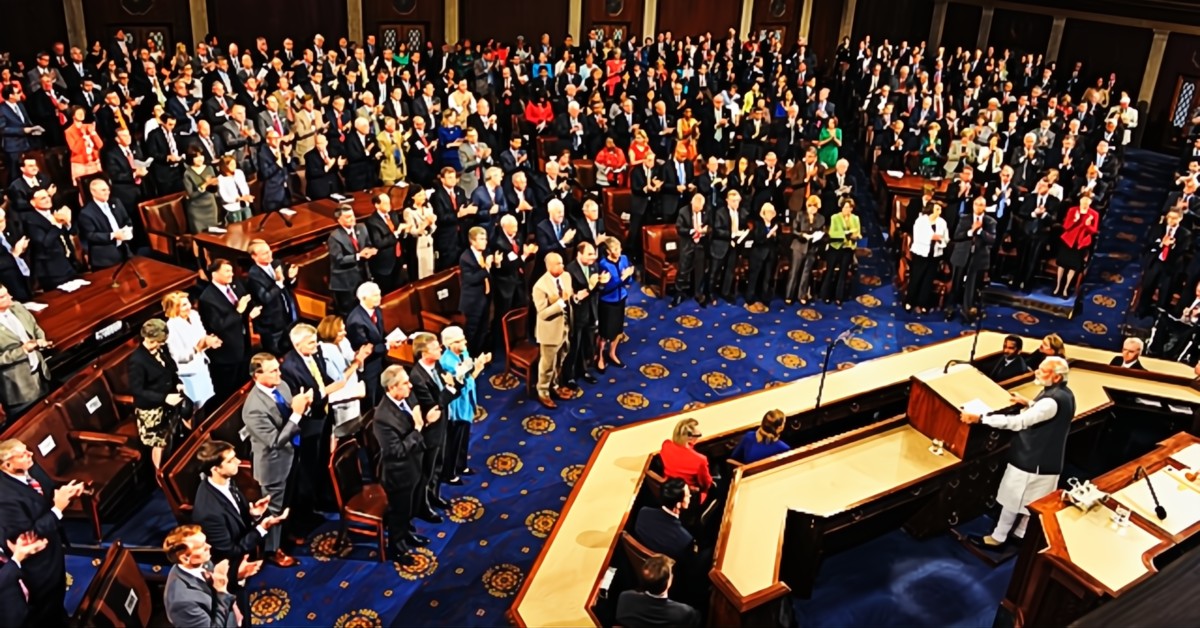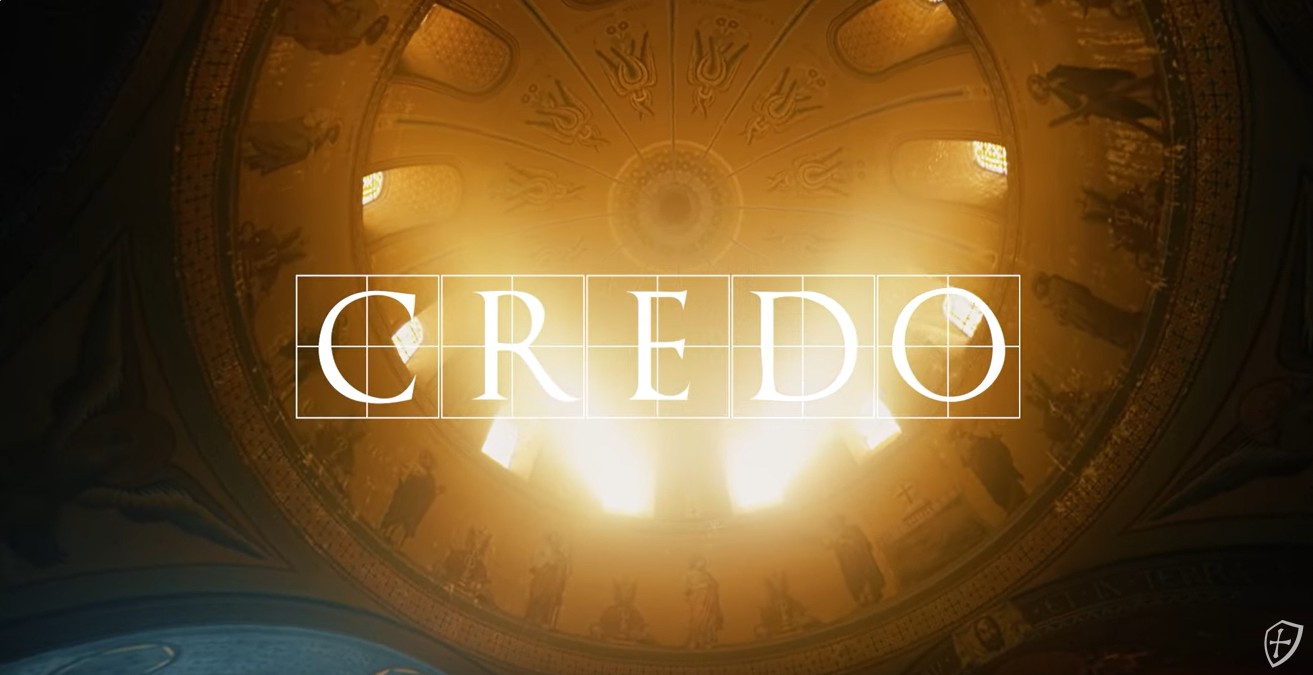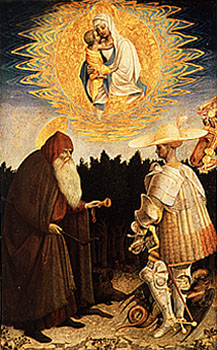We ask you, urgently: don’t scroll past this
Dear readers, Catholic Online was de-platformed by Shopify for our pro-life beliefs. They shut down our Catholic Online, Catholic Online School, Prayer Candles, and Catholic Online Learning Resources—essential faith tools serving over 1.4 million students and millions of families worldwide. Our founders, now in their 70's, just gave their entire life savings to protect this mission. But fewer than 2% of readers donate. If everyone gave just $5, the cost of a coffee, we could rebuild stronger and keep Catholic education free for all. Stand with us in faith. Thank you.Help Now >
Editorial: Who Will Speak for Human Embryonic Life?
FREE Catholic Classes
Who will speak for human embryonic Life? We must, if we hope to stop the spread of the Culture of Death and secure a future of authentic freedom.
Highlights
Catholic Online (https://www.catholic.org)
9/16/2008 (1 decade ago)
Published in Politics & Policy
CHESAPEAKE, Va. (Catholic Online) - In 1987, the Congregation for the Doctrine of the Faith of the Holy See issued its important teaching entitled "Instruction on Respect for Human Life in its Origin and on the Dignity of Procreation". Among the many questions it answered was: "What Respect is due to the human embryo, taking into account his nature and identity?" The answer:"The human being must be respected - as a person - from the very first instant of his (her) existence."
The prevailing view of human rights entrenched in American judicial precedent and legislation denies the equal protection of the law to the human embryonic person. American law refuses to recognize that human embryos have a right to life and the right to a future. There are a number of differing philosophical arguments offered to promote the lie that rights are conferred by positive civil law rather than by the Natural Law. Most of these arguments reserve the concept of person to those humans who are deemed to be "independent" and "autonomous".
Some try to make a distinction between "potential" and "actual" human persons and relegate the child in the womb to the category of being only a "potential" human person. Others view interdependency as negative and insist on independence as a criterion for any human rights to attach. They equate the human embryo's dependency on the mother as a form of "non-personhood". Still others propose a progressive notion of consciousness as indicative of a growing presence of "personhood". A few concede that human embryos are human beings but deny they are persons. We find all of these ideas in the field sadly referred to these days as "Bio-Ethics" even though such positions are anything but ethical. We find them in textbooks being used to teach the subject to future medical practitioners. (See, Singer and Kuhse, "Bioethics") For example, Michael Tooley denies the child in the womb any rights at all. His rationale evolved over time. In each version he shifted his ground. Yet, human embryology and developmental biology affirm that a human embryo is not distinct in kind from a human being, but a human being at an early stage of development. Even prior to implantation, an embryo is a unique living human being with the genetic constitution and epigenetic primordial that continues to develop throughout his or her life. The right not to be killed in the womb, the right to be born and the right to participate in human relationships are rejected for these little persons. Human embryonic lives are reduced to what one astute Catholic philosopher and lawyer Robert George called a "pre-personal way of being human".
The idea that people can be less than persons is now being applied to other stages of human development outside of the womb. The disabled (physically and mentally), the aged and the infirmed are increasingly denied the protection of the law. There is an emphasis on individual rights over relation and autonomy over solidarity. The Servant of God John Paul wrote in "The Gospel of Life" concerning this "remarkable contradiction". He further elaborated: "...the roots of the contradiction between the solemn affirmation of human rights and their tragic denial in practice lies in a notion of freedom which exalts the isolated individual in an absolute way, and gives no place to solidarity, to openness to others and service of them."(Par. 19) This counterfeit notion of freedom views comatose human beings as no longer worthy of being called "persons". Their caregivers are encouraged to stop giving them food and water. Seriously ill children are viewed as interlopers who should not continue to use medical and social resources. Whether the criteria for being recognized as a human person is a satisfactory level of brain function, an agreed upon notion of self awareness, non-dependency, individual autonomy, or some similar "acceptable" level of physical or mental capacity, this reduces the human being to a human doing.
There can be do debate that we were all once human embryos. We all lived in the first home of the whole human race, our mothers womb. For the Christian, we further profess that the Son of God, the Incarnate Word, the Second Person of the Blessed Trinity, was a human being, who, in the embryonic stage, lived in his mother's womb. At every age and stage of our human-beingness, in the womb, as an infant, as a child, an adolescent, an adult, in our times of illness, in our old age, we have always been dependent on others and vulnerable. This is what it means to be a human being. The emphasis of the proponents of the culture of death on independence and autonomy informs a worldview that Pope John Paul II taught threatens the "...entire structure of human rights." (Gospel of Life, Par. 19)
Who will speak for human embryonic Life? We must, if we hope to stop the spread of the Culture of Death and secure a future of authentic freedom for all God's children.
---
'Help Give every Student and Teacher FREE resources for a world-class Moral Catholic Education'
Copyright 2021 - Distributed by Catholic Online
Join the Movement
When you sign up below, you don't just join an email list - you're joining an entire movement for Free world class Catholic education.

-

-
Mysteries of the Rosary
-
St. Faustina Kowalska
-
Litany of the Blessed Virgin Mary
-
Saint of the Day for Wednesday, Oct 4th, 2023
-
Popular Saints
-
St. Francis of Assisi
-
Bible
-
Female / Women Saints
-
7 Morning Prayers you need to get your day started with God
-
Litany of the Blessed Virgin Mary
Pope Francis Suffers Fall: A Look at Papal Health and Succession
-

The Erosion of Civility in Congressional Hearings: A Call for Professional Decorum
-

Bishop Strickland and Others Defend Apostolic Tradition in New Documentary on the Church's Enduring ...
-
At Least 25 Dead as Wildfires Continue to Rage Across Los Angeles, Arson Investigations Underway
-
Australian Woman Charged with Torture After Exploiting Child for Donations
Daily Catholic
 Daily Readings for Friday, January 17, 2025
Daily Readings for Friday, January 17, 2025 St. Anthony the Abbot: Saint of the Day for Friday, January 17, 2025
St. Anthony the Abbot: Saint of the Day for Friday, January 17, 2025 Prayer for a Blessing on the New Year: Prayer of the Day for Tuesday, December 31, 2024
Prayer for a Blessing on the New Year: Prayer of the Day for Tuesday, December 31, 2024- Daily Readings for Thursday, January 16, 2025
- St. Fursey: Saint of the Day for Thursday, January 16, 2025
- St. Theresa of the Child Jesus: Prayer of the Day for Monday, December 30, 2024
![]()
Copyright 2024 Catholic Online. All materials contained on this site, whether written, audible or visual are the exclusive property of Catholic Online and are protected under U.S. and International copyright laws, © Copyright 2024 Catholic Online. Any unauthorized use, without prior written consent of Catholic Online is strictly forbidden and prohibited.
Catholic Online is a Project of Your Catholic Voice Foundation, a Not-for-Profit Corporation. Your Catholic Voice Foundation has been granted a recognition of tax exemption under Section 501(c)(3) of the Internal Revenue Code. Federal Tax Identification Number: 81-0596847. Your gift is tax-deductible as allowed by law.






 Daily Readings for Friday, January 17, 2025
Daily Readings for Friday, January 17, 2025 St. Anthony the Abbot: Saint of the Day for Friday, January 17, 2025
St. Anthony the Abbot: Saint of the Day for Friday, January 17, 2025 Prayer for a Blessing on the New Year: Prayer of the Day for Tuesday, December 31, 2024
Prayer for a Blessing on the New Year: Prayer of the Day for Tuesday, December 31, 2024


